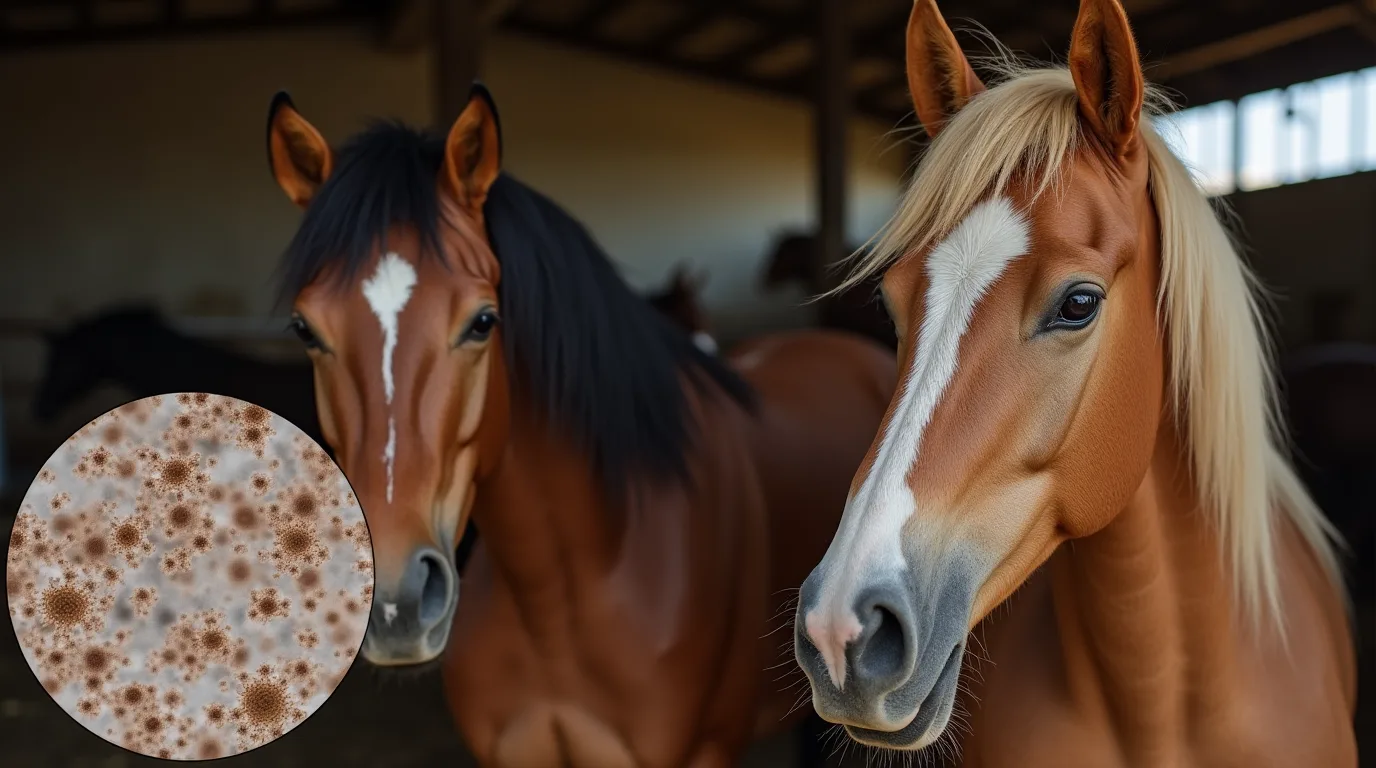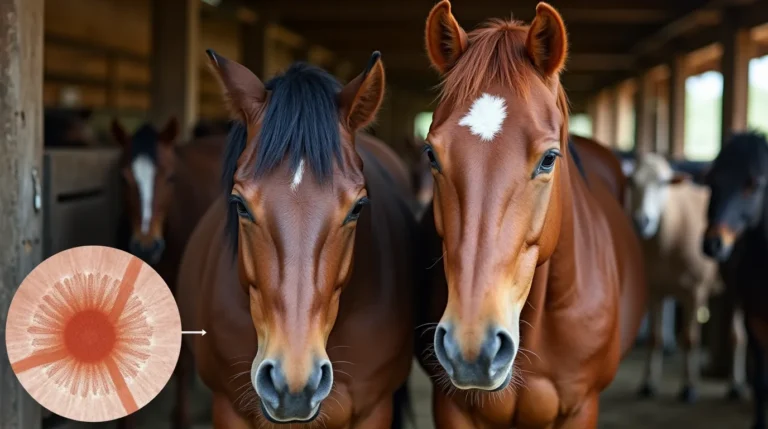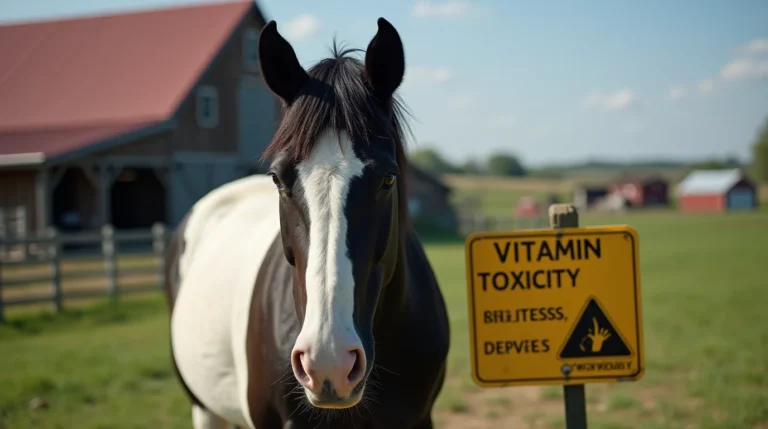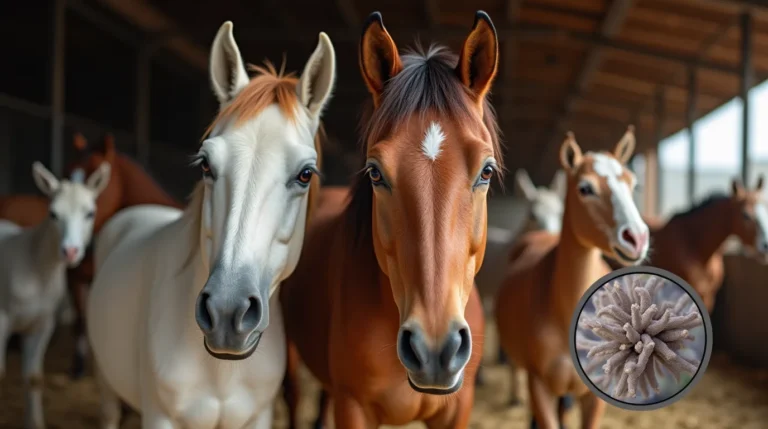Protect your horses from deadly toxins: Learn about 5 critical Poisoning in Horses risks, prevention strategies, and expert tips to keep your equine companions safe and healthy.
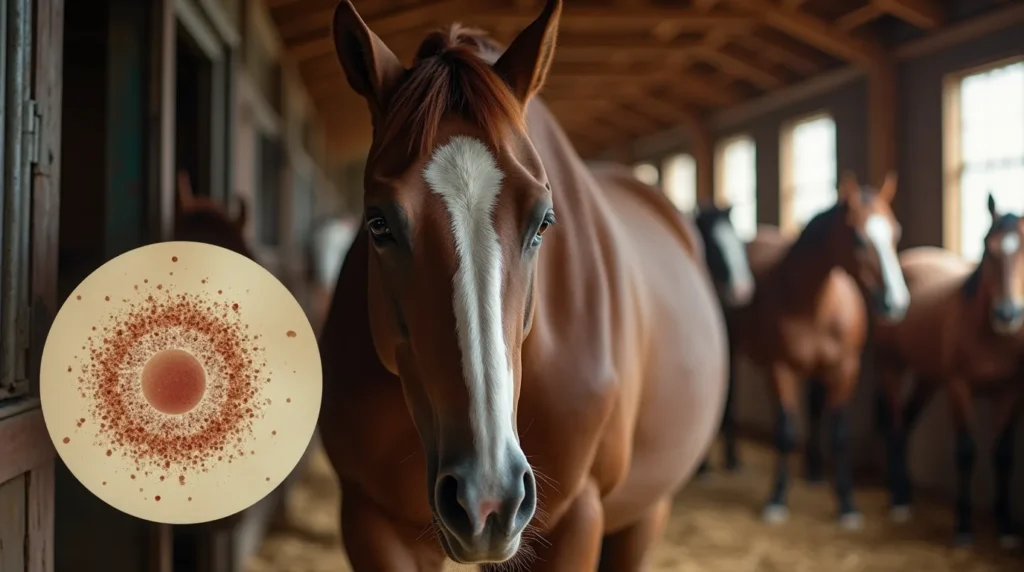
Table of Contents
Horse owners know that prevention is always better than cure, especially when it comes to potential poisoning risks. Poisoning in horses can occur through various sources, often unexpectedly and with devastating consequences. This comprehensive guide will explore the most common toxins that threaten equine health, providing you with crucial knowledge to protect your valuable companions.
Every year, hundreds of horses suffer from preventable poisoning incidents, making awareness and proactive management essential for responsible horse care. Whether you’re a seasoned equestrian or a new horse owner, understanding these risks can literally save a life.
Understanding Poisoning in Horses: An Overview
What Constitutes Horse Poisoning?
Poisoning in horses occurs when toxic substances enter the animal’s system, causing adverse health effects ranging from mild symptoms to life-threatening conditions. These toxins can be ingested, inhaled, or absorbed through the skin, making comprehensive prevention critical.
The 5 Most Common Toxins Threatening Horse Health
1. Plant-Based Toxins
Dangerous Plants in Equine Environments
- Ragwort: Causes severe liver damage
- Buttercups: Can cause mouth irritation and digestive issues
- Black Walnut: Induces laminitis and significant inflammatory responses
Prevalence Statistics:
| Plant Toxin | Estimated Annual Incidents | Severity Rating |
| Ragwort | 350-500 cases | High |
| Buttercups | 200-300 cases | Moderate |
| Black Walnut | 150-250 cases | High |
2. Chemical Contamination
Common Chemical Hazards
- Pesticides
- Herbicides
- Industrial chemicals
- Automotive fluids
Prevention Strategies:
- Store chemicals in locked, secured areas
- Use horse-safe alternatives when possible
- Restrict horses from areas recently treated with chemicals
3. Feed and Nutritional Toxins
Contaminated Feed Risks
- Moldy hay
- Improperly stored grain
- Feed containing mycotoxins
- Contaminated water sources
Key Warning Signs:
- Sudden changes in eating behavior
- Unexplained weight loss
- Digestive irregularities
- Neurological symptoms
4. Medication and Supplement Overdoses
Accidental Pharmaceutical Exposure
Common risks include:
- Incorrect dosage
- Mixing incompatible medications
- Accidentally accessing human medications
- Improper storage of veterinary drugs
5. Environmental Toxins
Unexpected Poisoning Sources
- Lead-based paint chips
- Zinc contamination
- Heavy metal exposure
- Toxic soil or groundwater
Comprehensive Prevention Strategies
Proactive Risk Management
- Regular property inspections
- Professional veterinary consultations
- Comprehensive environmental assessments
- Employee and caretaker education
Emergency Response Protocol
- Identify symptoms quickly
- Contact veterinarian immediately
- Preserve potential toxin samples
- Document observable symptoms
Recommended Pet Products on Amazon
- Horse First Aid Kit
- Professional Toxin Detection Test Strips
- Equine Environmental Safety Handbook
- Advanced Horse Health Monitoring Device
Poisoning in Horses (FAQ)
Q1: How quickly can horse poisoning occur? A: Some toxins can cause symptoms within minutes, while others might take hours or days to manifest.
Q2: Are all horses equally susceptible to poisoning? A: Susceptibility varies based on age, health status, and individual immune response.
Q3: Can I prevent all potential poisoning risks? A: While 100% prevention is challenging, comprehensive management significantly reduces risks.
Conclusion
Understanding and preventing poisoning in horses requires continuous education, vigilance, and proactive management. By recognizing potential risks and implementing robust prevention strategies, horse owners can create safer, healthier environments for their equine companions.
Call to Action: Share your experiences or insights about horse safety in the comments below! Interested in more expert pet care recommendations? Visit BlithePet for comprehensive guides and professional advice.
Expert Tip
Always consult with a veterinarian for personalized guidance tailored to your specific horse’s health needs and environmental conditions.

